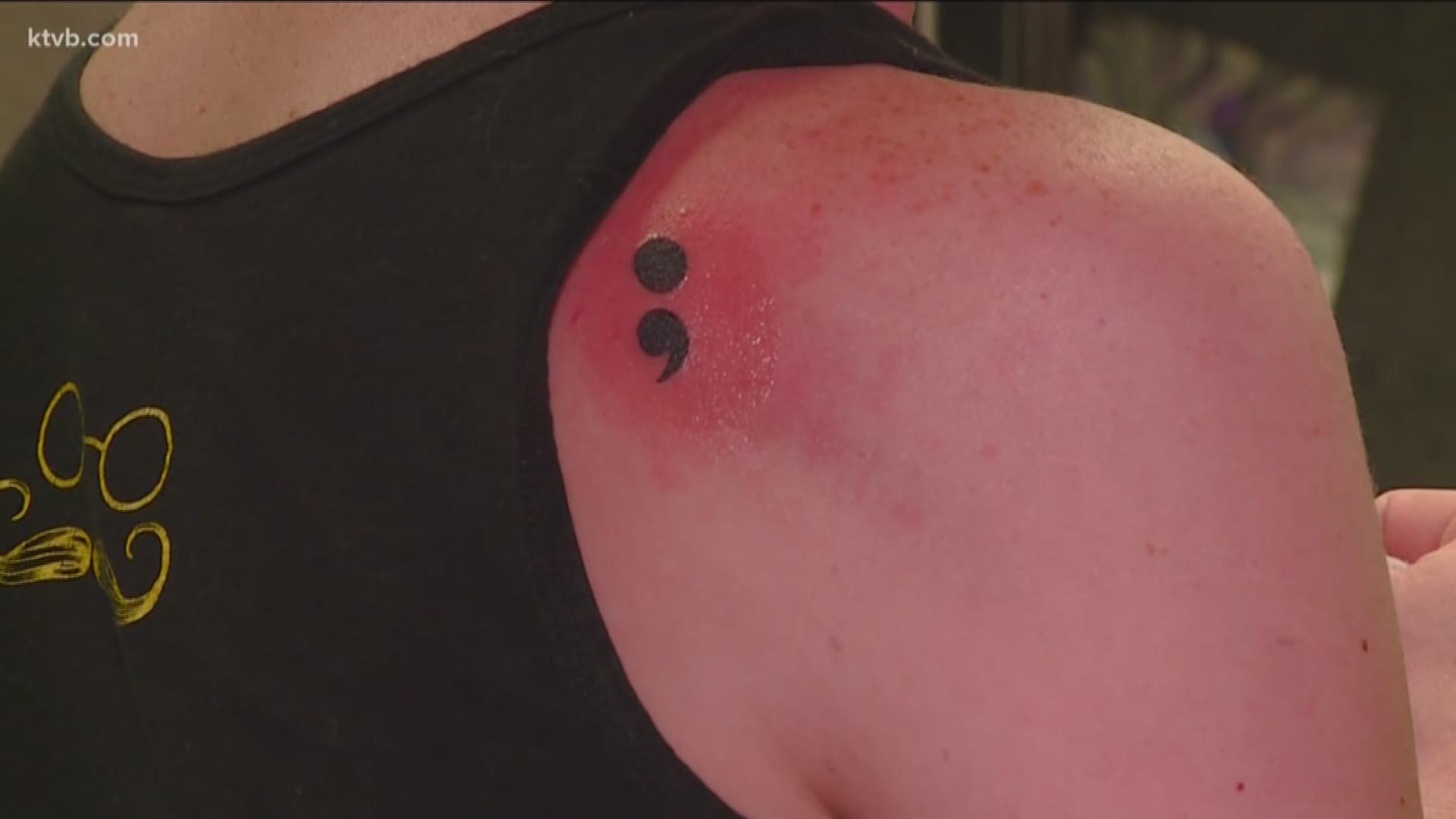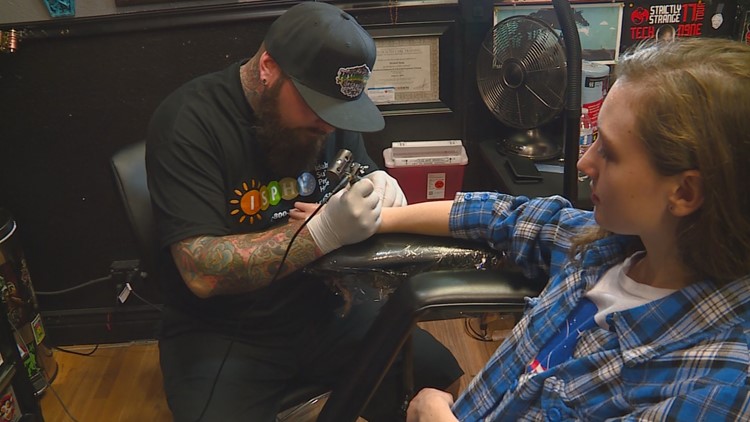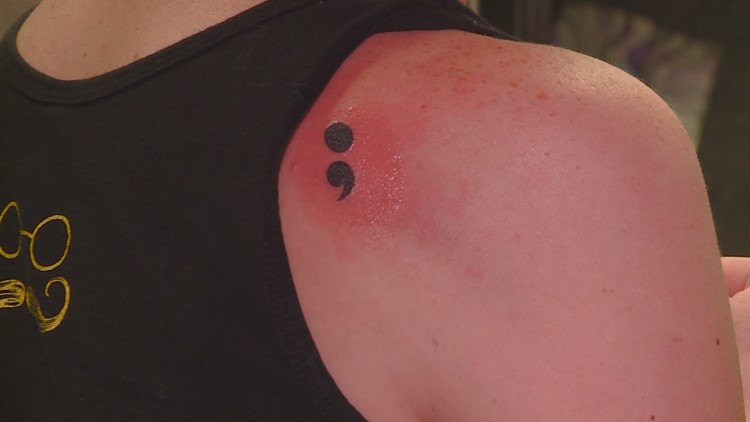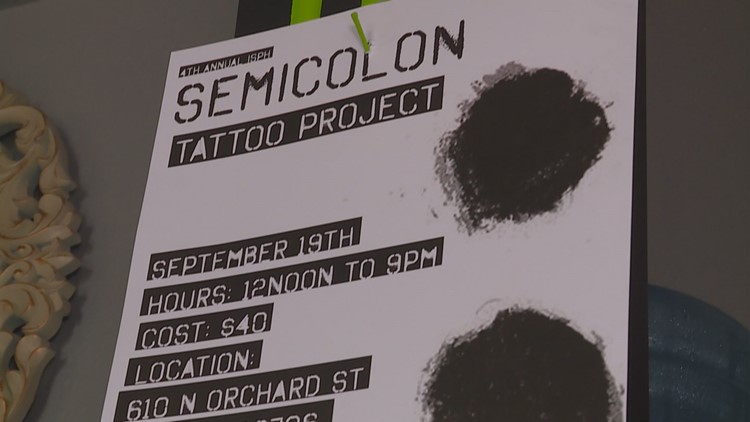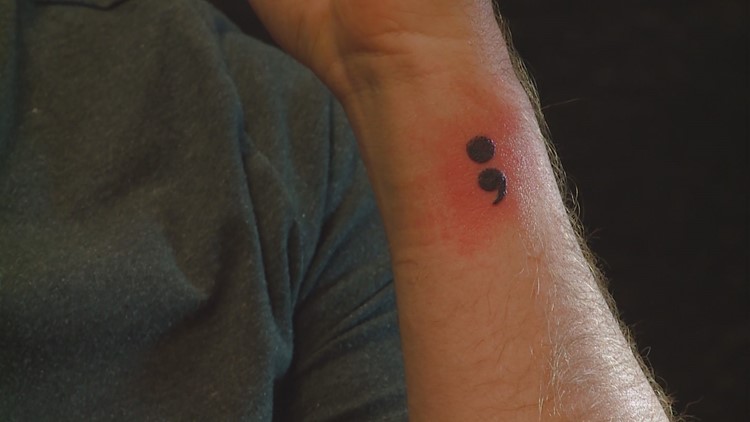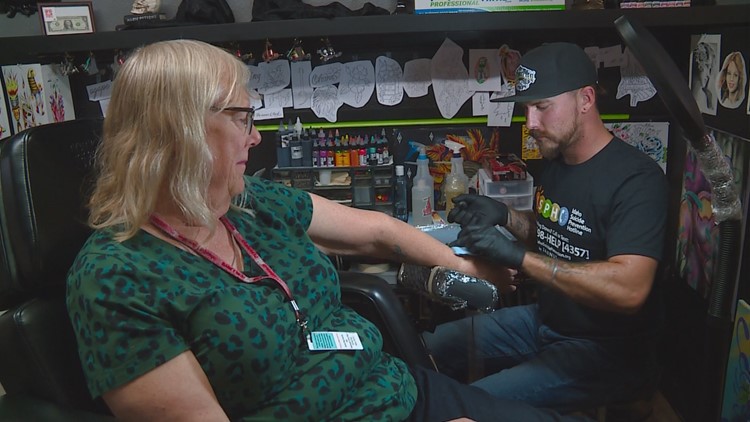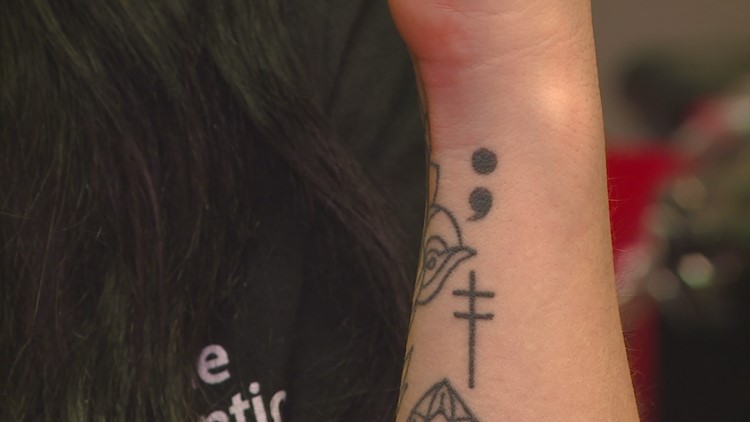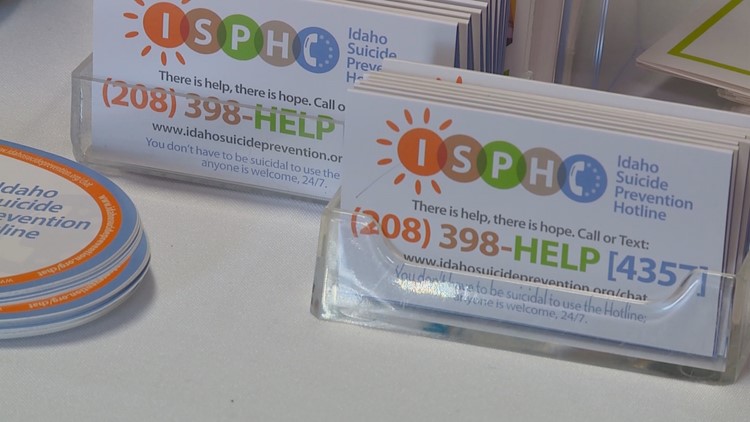BOISE — Tattoo artists and the Idaho Suicide Prevention Hotline have teamed up in Boise to end the taboo and stigma of suicide.
Suicide is the second-leading cause of death for Idahoans age 15-34, according to the Suicide Prevention Action Network of Idaho.
The buzz inside Resurrected Tattoo and Piercing is loud.
"Absolutely, you want to talk about it, you want to get it out in the open, people asking more questions about it," said customer Devin Fox.
Those looking to show their support for the cause are getting tattoos of a semicolon, which has become a symbol for suicide prevention. Donna Carter and her coworkers tattooed semicolons for nine hours Wednesday to raise awareness and money for the Idaho Suicide Prevention Hotline.
"Basically the idea behind it is that a semicolon is a part in a sentence that could end, but that chooses to go on," Carter said. "So it's a metaphor for mental illness where someone could choose to take their own life, but instead chooses to live."

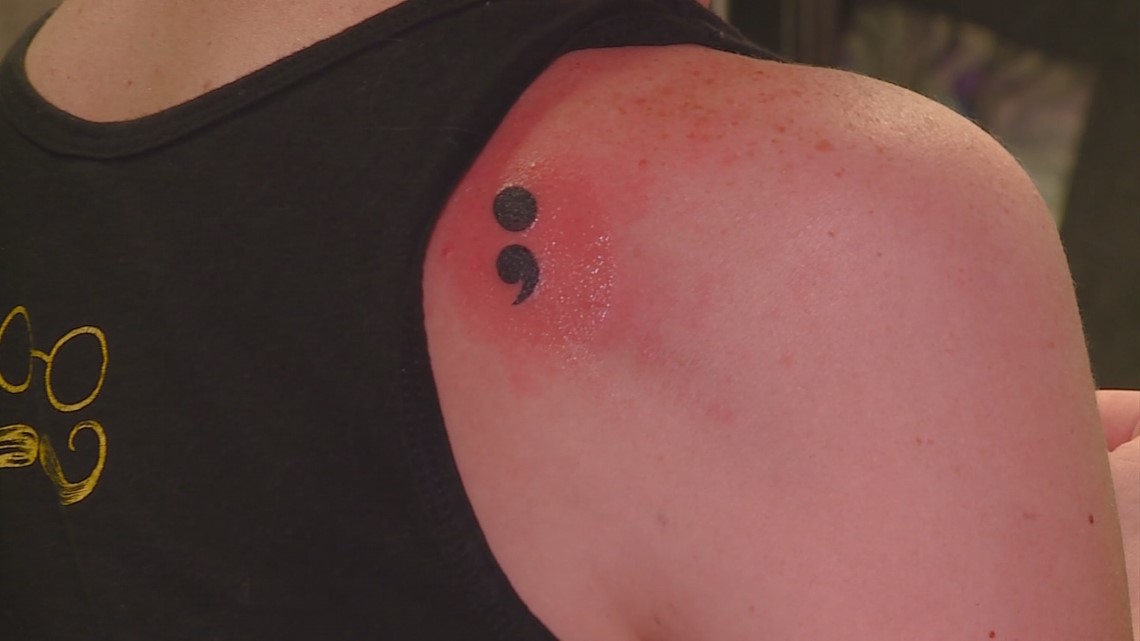
Idaho is consistently among the states with the highest suicide rates, 57 percent higher than the national average, according to Suicide Prevention Action Network of Idaho.
But by starting a conversation, providing support, and directing help to those who need it, the hotline says we can prevent suicides and save lives.
"If you're worried about someone, the first thing we tell them to do is ask them directly, 'Are you thinking about suicide?'" said Lila Stange with the Idaho Suicide Prevention Hotline.
Semicolon Tattoo Project starts conversation about suicide prevention
Stange says asking someone directly if they're thinking about suicide will not put the idea in their head.
"People are so afraid that if you ask, if you say that word that it will make someone suicidal, but that's not the truth," Stange said. "People that are struggling, they often want to talk about it. They're asking for help, they're asking for someone to notice." Talking helped Carter through her suicidal tendencies.
"Talking to people generally helps to alleviate a lot of the burden and finding that common ground and knowing that you're not alone and that other people have those thoughts and tendencies," Carter said.
That said, asking the question and starting a conversation with someone you're worried about can be uncomfortable and awkward. USA Mental Health First Aid suggests beginning with a few simple words: "Are you okay?" and following up with, "How are you, really?" Paying attention and offering a listening ear are the first steps in showing support.
Another way to initiate a conversation is by explaining behavior changes you've noticed: "I've noticed that..." and then expressing genuine concern. Also, consider doing an activity while you talk, such as taking a walk. USA Mental Health First Aid says doing an activity can take some of the nerves or discomfort out of the conversation.
"So if I ask somebody who's struggling, 'Are you thinking about suicide,' what it tells them is that I'm not afraid to talk about that with them," Stange said.
The Idaho Suicide Prevention Hotline is a resource for people who are worried about someone else and don't know what to do. Stange says the Hotline will walk you through the steps of how to help that person.
"One of the biggest misunderstandings about suicide is that it's about wanting to die and that's absolutely not it," she said. "It's about ending pain and it's just people in crisis and distress that just see no way out."
Talking is something we can and should all do. It can save a life.
"We say at the (hot)line that suicide is preventable," Stange said. "If you talk about the pain, you see that somebody cares for you, that can be your lifeline, your reason to live."
Call the Idaho Suicide Prevention Hotline at 208-398-4357 24 hours a day, 7 days a week, year-round. Text support is available Monday through Friday, 3pm to midnight.
For more information about mental health first aid training, contact The Speedy Foundation.

